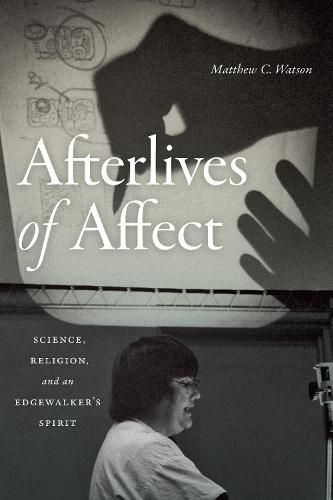Readings Newsletter
Become a Readings Member to make your shopping experience even easier.
Sign in or sign up for free!
You’re not far away from qualifying for FREE standard shipping within Australia
You’ve qualified for FREE standard shipping within Australia
The cart is loading…






In Afterlives of Affect Matthew C. Watson considers the life and work of artist and Mayanist scholar Linda Schele (1942-98) as a point of departure for what he calls an excitable anthropology. As part of a small collective of scholars who devised the first compelling arguments that Maya hieroglyphs were a fully grammatical writing system, Schele popularized the decipherment of hieroglyphs by developing narratives of Maya politics and religion in popular books and public workshops. In this experimental, person-centered ethnography, Watson shows how Schele’s sense of joyous discovery and affective engagement with research led her to traverse and disrupt borders between religion, science, art, life, death, and history. While acknowledging critiques of Schele’s work and the idea of discovery more generally, Watson contends that affect and wonder should lie at the heart of any reflexive anthropology. With this singular examination of Schele and the community she built around herself and her work, Watson furthers debates on more-than-human worlds, spiritualism, modernity, science studies, affect theory, and the social conditions of knowledge production.
$9.00 standard shipping within Australia
FREE standard shipping within Australia for orders over $100.00
Express & International shipping calculated at checkout
In Afterlives of Affect Matthew C. Watson considers the life and work of artist and Mayanist scholar Linda Schele (1942-98) as a point of departure for what he calls an excitable anthropology. As part of a small collective of scholars who devised the first compelling arguments that Maya hieroglyphs were a fully grammatical writing system, Schele popularized the decipherment of hieroglyphs by developing narratives of Maya politics and religion in popular books and public workshops. In this experimental, person-centered ethnography, Watson shows how Schele’s sense of joyous discovery and affective engagement with research led her to traverse and disrupt borders between religion, science, art, life, death, and history. While acknowledging critiques of Schele’s work and the idea of discovery more generally, Watson contends that affect and wonder should lie at the heart of any reflexive anthropology. With this singular examination of Schele and the community she built around herself and her work, Watson furthers debates on more-than-human worlds, spiritualism, modernity, science studies, affect theory, and the social conditions of knowledge production.